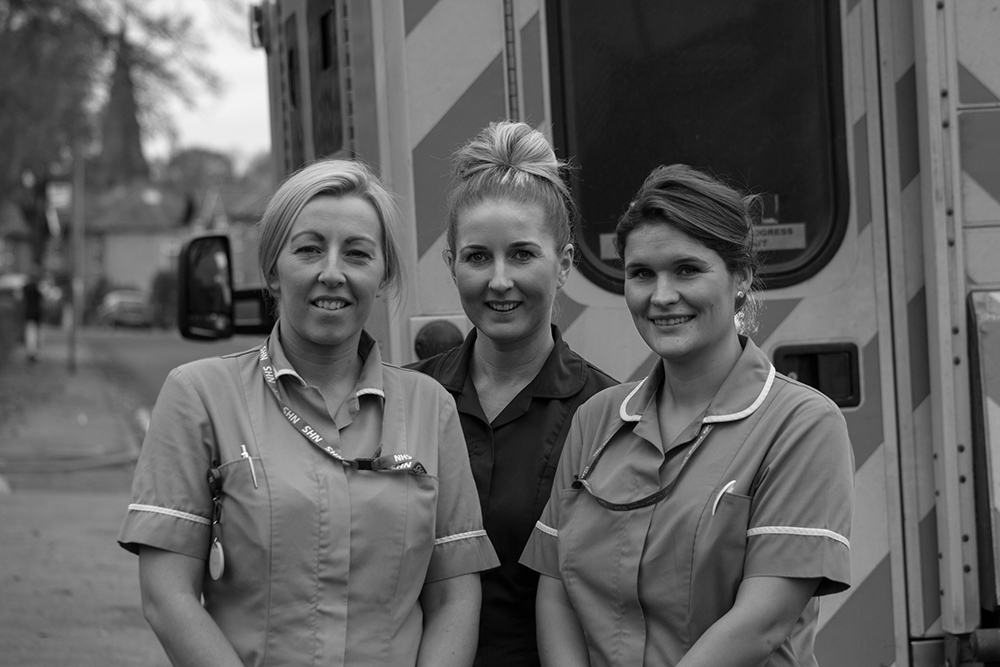Pictured: District Nurses Victoria Woods, Katie Hargreaves and Hannah Butler
Our patient Martin Simm was diagnosed with cancer in the summer of 2016 and sadly passed away in October the same year, aged just 40.
During the all too brief few months we knew him, we developed an extraordinary bond with Martin and his family that went beyond providing treatment.
Actually, we were a distraction for the family – but in a good way. We’d been visiting Martin every few weeks but in his final couple of months we visited twice a day. At that time, Martin was living with his parents and the family looked forward to our visits. We talked about our lives and had the opportunity to learn about the family’s home situation, not just Martin’s condition.
As a nurse, you’re always learning. Martin travelled to Cornwall and everyone knew it would be his final trip but we were able to make arrangements for his care. We rang him at the airport and then when he arrived in Cornwall – we wanted to make sure he was alright because of the possible problems that could have arisen.
Growing close to Martin and his family has meant other patients have benefitted from our knowledge and experience. Earlier this year, we treated a patient with a similar diagnosis to Martin. Thankfully that experience had a different ending with the patient’s cancer recently in remission.
Receiving the STAR Award (the Trust’s staff recognition ceremony) has been massive for us. It’s given us great confidence and well deserved recognition for community staff – district nurses, physios and the admin staff who support us. It’s also allowed us to share and develop our knowledge, that’s Martin’s legacy as far as we’re concerned.
The ageing population combined with efforts to keep patients at home, not in hospital, reinforces the vital role of community nursing teams; “pillars of the community”, according to a recent Royal College of Nursing report.
Community nursing is growing every day with the focus on treating people at home. Our relationship with Martin and his family was special but we’d do the same for any of our patients. Working in the community gives us the time to build a stronger relationship with the patient, more so than in hospital. Meeting patients in their own home is where you learn more about their lives.
In hospital after discharge, nursing staff don’t have the chance to follow the patient. In the community, we have greater autonomy in the way we treat and manage patients – they feel less stressed and anxious than on a hospital ward and we enjoy an equally close working relationship with a wide range of other health and social care professionals.
On a personal level, we’ve been for coffee with Martin’s parents – they’re lovely people and find great comfort in talking.
And for Martin’s parents coming to the STAR Awards ceremony meant so much – his father making a speech on stage was so emotional. For the Kiddrow Lane Community Nursing Team – all 20 of us – getting recognised in that way really boosts our confidence. Yes, you do hear the occasional negative comment but there are many more positives about community nursing that our STAR Award has helped to promote.



